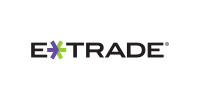Getting Started Trading With Online Brokers
Welcome to the next in our series of InvestorGreg podcasts, teaching you all about investment markets in an easy to understand way. Sign up at the InvestorGreg.net investment portal and to our social media for the latest news, educational content, and market insight wherever you are.
Today’s podcast will cover everything you need to know about online brokers and how to choose a broker that fits your needs as a trader from the very beginning. This is a key first step in setting yourself up for trading success.
Online Brokers
So, what exactly is an online broker? Very simply, an online broker is one which facilitates your trading in many types of asset (securities), online. This means no more visits to your bank, or calls to your broker’s office. Everything is done through the wonders of technology and is completely accessible from your computer or mobile device in many cases.
There are three main types of online broker that you will come across when you are starting your journey in online trading. These are, full-service brokers, discount brokers, and the increasingly popular robo-advisors.
Let’s take a closer look at exactly what each has to offer:
Full Service Brokers
Full service brokers as the name suggests are brokers who not only execute trades for you but also perform a range of other services. These services typically include providing research on your trades, comprehensive financial planning and advice, as well as other information on potential tax benefits and other insights which may help you to make successful trades.
Full-service brokers are those that may come to mind if you picture the stereotypical broker/trader relationships that are at the heart of the financial industry all around the world. Some of the most famous names here include Morgan Stanley, Merrill Lynch, and JP Morgan, but a full-service broker is simply one which provides you with a full range of these services and now includes an online component.
Discount Brokers
Moving on to discount brokers, these are some of the most common and popular choices for the majority of retail traders. They are more accessible than ever and as the name implies, they are very competitive on costs. You will definitely save on commissions and fees with any discount broker when compared with a full-service alternative.
There are any number of examples when it comes to discount brokers, all of these are mentioned in our detailed broker catalogue available at investorgreg.net. What you will get with a discount broker is a wide range of markets to trade in. Forex, stocks, commodities, bonds, ETFs, cryptos, and more depending on the broker. What you will not get here is any of the direct financial advice and planning services. You will be fully responsible for choosing and making your own trades. So a discount broker is more DIY in a sense, though they are continually evolving to provide a wide range of features and support, but this is almost exclusively online with no “consulting” contact as such.
Robo-Advisors
The final type of broker that is taking the sector by storm lately, is the robo-advisor. These are brokers or financial service companies that not only provide their services exclusively online, but also rely on software and computer algorithms to provide a fully automated broker service.
Robo-Advisors require almost no human interaction. You simply open an account, set the risk parameters and other conditions you want your portfolio to follow, and everything else is completely automated by the broker. The major feature that most of these robo-advisors focus on is what we call portfolio rebalancing where periodic changes are made so that your portfolio always stays well-balanced in terms of the guidelines you have set. These brokers may also be able to provide some solutions in terms of optimizing your portfolio for taxes using a strategy called tax-loss harvesting.
How to choose your first online broker
Now that you have a basic understanding of the broker types available, we will take a look at the factors you have to consider when choosing your first online broker, and how the three broker types we have mentioned stack up against each other in this regard.
Commissions
When we talk about commissions, this is typically referring to the fee charged per transaction, in this case per trade by the broker. When you are dealing with a full-service broker online or offline, you could be looking at commissions of between $100 and $200 per trade as a minimum. There can also be annual management fees with these brokers of 1% or more of your total portfolio worth.
With discount brokers, commissions are greatly reduced. This essentially mirrors the amount of work a broker has to put in to facilitate your trade. Many discount brokers offer account types that are completely commission-free and are very competitive when it comes to any other fees, often offering a completely fee-free environment. They usually work on spreads. This is calculated by minusing the bid from the ask price which leaves several pips or points. This is in essence a fee and you should factor it in to the trade In order to know if you stand to make a profit or not. Spreads can be fixed or floating. Fixed spreads allow you to know the exact number in advance, wheras floating tracks the market instead. As it is changeable you cannot factor it into your trading plan in advance.
If however there are any commissions, these typically fall within the $5-$10 per trade bracket. ECN or no dealing desk brokers which pass on trades to third party liquidity providers or to the electronic communications network will charge little to no spreads and will charge commissions instead.
A robo-advisor again is typically a very cost effective choice. They generally do not charge any commissions and instead opt for a fixed annual fee of between 0.25% - 0.5% of assets managed.
Account minimum
Now, how much money do you need to open an online broker account? Again this varies a lot depending on your broker choice. Many full-service brokers will require a minimum deposit of $1,000 or more to get started. Conversely, both discount brokers and robo-advisors can be available with no minimum deposit or at least one that is very low. This can be great at keeping trading very accessible if you are just starting out.
Deposits & Withdrawals
Getting this money into your account or making a withdrawal is typically a relatively easy process regardless of which online broker type you choose. All brokers will typically have wire transfers available for both deposits and withdrawals with these taking a few days to process in either direction. This may be the only method available with some full-service brokers.
In many cases with discount brokers or robo-advisors you will also be able to make instant deposits and withdrawals using your credit or debit cards and maybe even some eWallets like PayPal, Neteller, and Skrill. Deposits with both these latter types of online broker are also usually fee-free.
Regulator
Now understandably if you are a first time trader using an online broker, you may be concerned about security and the safety of your funds when trading. The good news is there is no need to worry. The vast majority of all online brokers have been operating for many years and have widely trusted reputations for prioritizing trader security and remaining fully compliant. These reputations are further bolstered in most cases by the presence of regulation. This comes from several top regulatory bodies who the brokers voluntarily submit to for oversight.
Some of the best regulators in the trading world include CySEC for European traders, the FCA if you are in the UK, and ASIC for those based in Australia. For those based in the US, regulation can be mandatory and comes from the SEC, NFA, and CFTC generally. The majority of brokers will also have negative balance protection in place to stop you from ever losing more than you deposit, and a number of measures enacted to protect your funds in the unlikely event the broker experienced some financial difficulty.
So, you should be completely safe and secure at all times, but of course if you have any doubt you can always consult our broker catalog at InvestorGreg to get the lowdown on all of the top brokers in the industry. You can also use our compare brokers tool to set your own parameters and find the broker that is just perfect for your needs.
Promotion
Another thing that is always worth considering when you open a new broker account are any available promotions. These could come in the form of no deposit bonuses, deposit matching programs eg. You deposit $1000 and you get $1000 to trade with, and other beneficial events like virtual fund trading contests with real prizes. These are often offered by discount brokers, though some regulatory areas like the UK and EU prohibit some of the more generous deposit bonuses. When you are offered a promotion, find out the conditions attached to it. Often you will have to reach a certain trading volume in order to be able to withdraw it. This can go against you and is why the European regulators have banned deposits as misleading.
How to Open an Online Broker Account
The final step once you have considered everything, is to actually get your account open. With the technology in place nowadays, that process should be a similar walk in the park no matter what kind of broker you choose. What you will typically need to hand is your passport, a recent utility bill or bank statement showing your address as it is registered with the broker, and some basic personal information including a valid phone number and email address. From there, almost all brokers have an online verification process where you take a picture of the documents and upload them for verification. This can take up to 24 hours but is usually complete in much less.
So now that you online broker account is open, you can jump straight into live trading, or you can also try out a completely free demo account with almost all major brokers. This can help you get to know the ropes with virtual currency and absolutely no risk, a great idea if you are a new trader!
So, you are all set. That is the complete lowdown on online brokers and how you can get started! Thanks for listening & we wish you every success and don’t forget InvestorGreg is here to help you every step of the way with news, broker reviews, and more. Don’t forget to check out our website InvestorGreg.net for all the latest, and subscribe to the podcast to see the next installment coming very soon!
Recommended Financial Products
Full list of recommended Stock Brokers
Most Popular Articles
Featured Reviews




